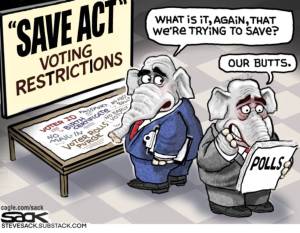Comment: Past decision backs justices into corner on ghost guns
Published 1:30 am Monday, October 14, 2024
By Noah Feldman / Bloomberg Opinion
Should so-called ghost guns — assembled at home from kits in as little as 20 minutes — be counted as guns for purposes of federal law?
If you have an ounce of common sense, the answer is obviously yes. The relevant law defines a firearm as “any weapon … which will or is designed to or may readily be converted to expel a projectile by the action of an explosive.” The definition specifically includes “the frame … of any such weapon.” And the undoubted purpose of the law is to protect Americans from untraceable guns being used in crimes — a purpose that clearly applies to any functional firearm, which ghost guns are.
Yet the Supreme Court heard oral argument on Tuesday about whether ghost guns count as firearms. A federal district court judge as well as the ultraconservative U.S. Court of Appeals for the Fifth Circuit both held the Bureau of Alcohol, Tobacco and Firearms had exceeded its authority under the federal law when it adopted a rule in 2022 making it clear that ghost guns must follow the same rules as other guns: that they be stamped with a serial number and that sellers conduct background checks.
After oral argument, it seems possible that the justices will reach a commonsense result. But that’s not at all certain.
The reason is that, on Tuesday, the justices sidestepped discussion of the law’s purpose. Instead, they spent the argument deep in the linguistic weeds, arguing about whether the ATF was right to say that a partially disassembled gun frame is still, you guessed it, a gun frame. This is textualism; the idea that statutes should be interpreted according to their words but not according to their purpose.
If this gives you a sense of horrified déjà vu, that’s because it echoes a case the court heard last term. In that case, the court had to decide whether the ATF was right to define bump stocks as machine guns. During oral arguments in Garland v. Cargill, the justices were similarly unwilling to ask the basic question of whether the purpose of the machine gun law was served by including bump stocks, which enable semiautomatic assault rifles to fire up to 800 rounds a minute. Then, in June, the justices ruled, 6-3, that bump stocks can’t be regulated as machine guns.
The absurdity of the bump stock decision is why I am not confident that the court will get the ghost guns issue right. There’s no doubt that ghost guns pose a public safety hazard. The government introduced evidence showing a 1,000 percent rise in the use of such guns for criminal purposes in the years before the ATF issued its clarifying rule. But the court cannot base its ruling on those real-world consequences as long as it is determined to focus only on a law’s text.
And so on Tuesday, the pro-ghost gun lawyers warned the justices that, if gun kits count as a gun, then AR-15s might count as machine guns, since they, too, can be turned into machine guns using a kit. The argument is specious, to be sure. But take a second to wonder at its sheer outrageous chutzpah: The justices were being told that if they treat ghost guns as guns, they might be forced to treat rifles that can become machine guns as, gulp, machine guns.
For five justices to uphold the ATF’s rule on ghost guns, without considering the rule’s purpose, they will have to declare that the language of the statute is clear. They will have to say that the parts in the ghost gun kits can be “readily converted” to firearms. That’s easy enough. But they will also have to say that something that can be readily turned into a gun frame counts as a gun frame. That’s logically straightforward in terms of the law’s purpose, but in a world of statutory interpretation bereft of logic, it may tax the justices’ interpretation skills.
For now, we are left hoping that the justices reach the right result, albeit for the wrong reasons. This awkward situation will prevail until, eventually, the court comes to its senses and starts considering a law’s purpose relevant to what the law means; the way nearly all legal systems have since the dawn of legal time.
Noah Feldman is a Bloomberg Opinion columnist. A professor of law at Harvard University, he is author, most recently, of “To Be a Jew Today: A New Guide to God, Israel, and the Jewish People.” ©2024 Bloomberg L.P., bloomberg.com/opinion. Distributed by Tribune Content Agency, LLC.


